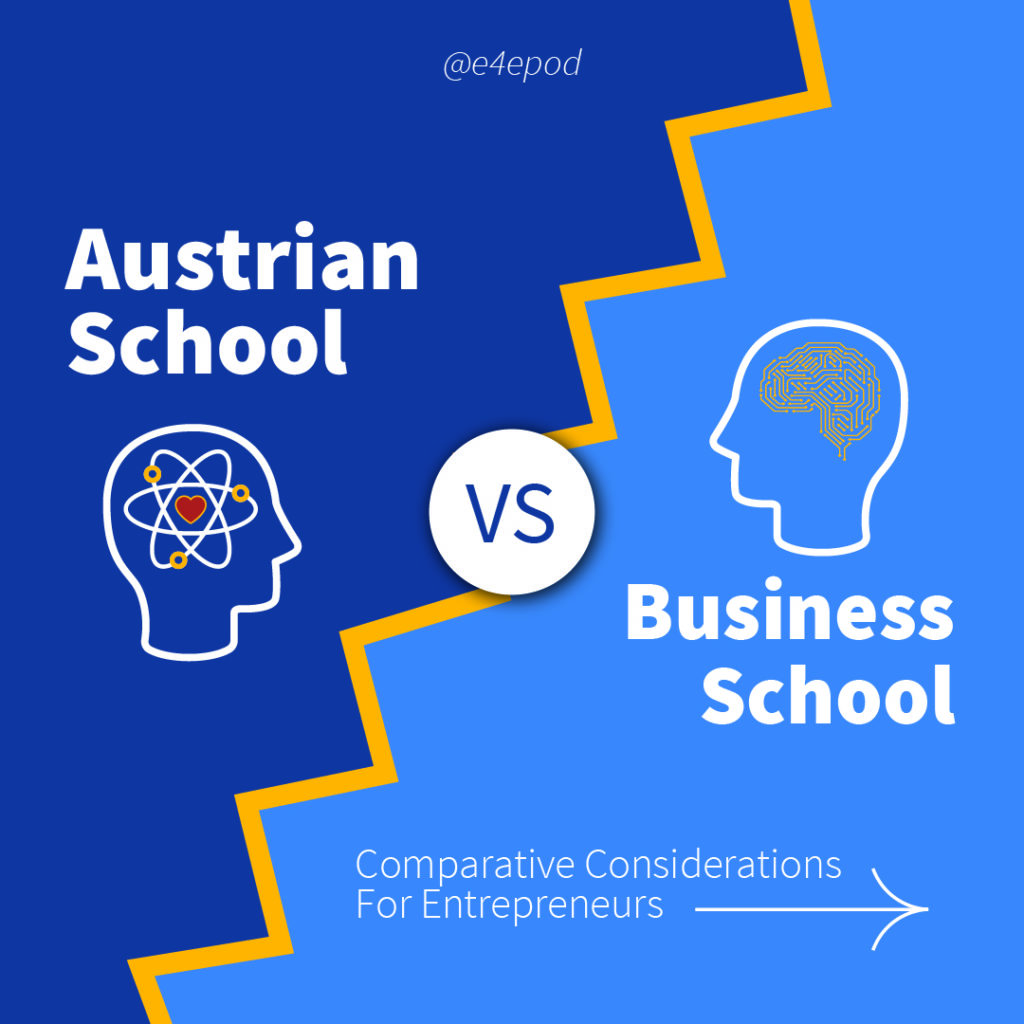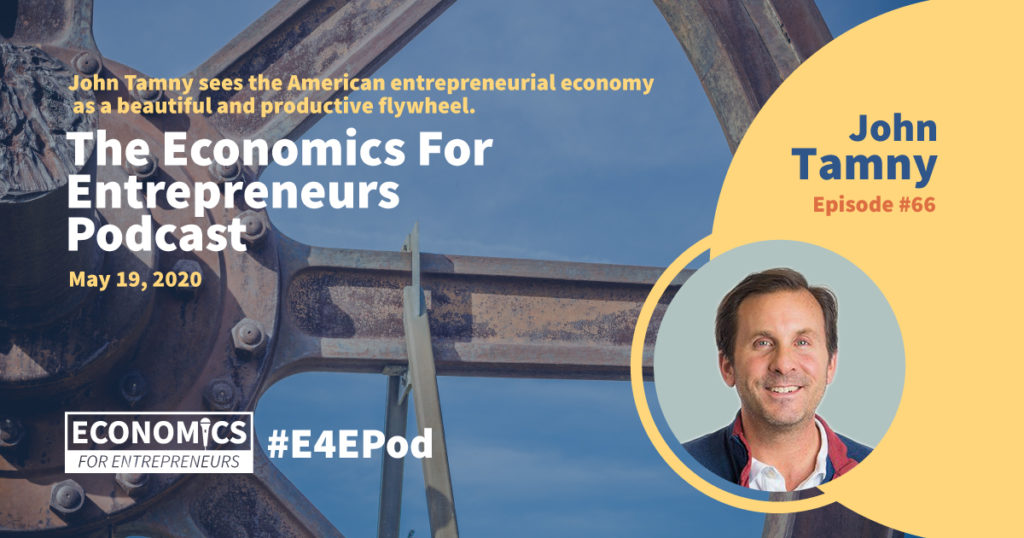Unsure Of Your Direction In These Turbulent Times? Entrepreneurship Can Provide All The Answers You Need.

2020 has been a strange year. My friend Ben always asks me, “Is the world crazy enough for you today?” He knows I nurture the entrepreneurial spirit and he likes to challenge me: there’s too much uncertainty in 2020 even for those who typically embrace it, which is a good definition of entrepreneurs.
But, in fact, entrepreneurship is the answer in crazy times. Here are several reasons why.
Entrepreneurs are independent.
In times of turbulence, whether economic or political, global, national or local, many people can get confused. They’re not sure what to think, and they find it difficult to sort through competing claims or conflicting evidence. They look for the reassurance of someone else’s opinion to latch onto.
That’s not the case with entrepreneurs. They are independent thinkers. They rigorously seek cause-and-effect where it can be found, but they are also keenly aware that complex systems – when shocked with a pandemic, a disputed election, civil unrest, zero and even negative interest rates, significant changes in shopping and travel habits – can exhibit unpredictable and unstable emergent properties.
Entrepreneurs apply their own judgment based on the information that’s available to them and the insight that’s unique to them; they make a decision; and then they test it against reality by implementing it and adapting based on the results that come back. Independent thinkers are society’s best resource amidst turmoil.
Entrepreneurs are non-ideological.
It sometimes appears that we are suffering through a clash of ideologies, whether social or political or economic. Ideologies tend to be rigid and unrelenting, and those who hold one see opponents in anyone who holds another. Ideologies are not useful to entrepreneurs, and so they don’t include them in their assembly of resources. Ideological rigidity doesn’t mix with the pragmatism and adaptiveness that are keys to entrepreneurial thriving.
A non-ideological world sounds very attractive right now.
Entrepreneurs have no time for identity politics and political correctness.
Entrepreneurs are typically pursuing a finite goal with a finite amount of resources. They need the best people they can recruit to join their team, they need clarity of communication and a shared mission. The last thing in the world they have any time for is worrying about the political correctness of a choice or of a statement. They’ll listen to legitimate market preferences of course, but they won’t be distracted by meaningless noise. entrepreneurs don’t lie bout equality or unity. They assemble diverse teams – where the diversity comes from complementary competencies not divisive demographic distinctions – and they judge on passion for the task, performance, and results.
Entrepreneurs are non-compliant.
A consequence of the pandemic is that a portion of the population has been beaten down into a state of compliance by authorities wielding mandates. Compliance is undesirable behavior when it is viewed through the entrepreneurial lens of innovation, betterment and economic growth.
We’re all better off when there is non-compliance: when Uber refuses to comply with the mandates n favor of taxis, or when AirBnB refuses to comply with pro-hotel mandates, or when medical researchers defy those who want to constrain experimentation and progress. Non-compliance is the right stance for society, and entrepreneurs can be counted upon to take it.
Entrepreneurs hold to the ethic of service.
In our current conflicted world, capitalism is condemned by some as exploitative and even evil. Some critics see profits that they deem to be extreme and extractive of the value that workers create, others see pollution and environmental damage. They are totally wrong and completely misguided.
The ethic of entrepreneurial capitalism is to serve others. The entrepreneurial market works when producers identify unmet needs and wants among their fellow-citizens who seek betterment and improvement. Multiple entrepreneurs compete to be the one chosen by consumers to meet that need, rivaling each other to come up with the highest quality / lowest cost solution. The ethic of entrepreneurial service has raised living standards across the globe and lifted billions out of poverty.
Keeping entrepreneurs unleashed will generate more and faster improvements in the future.
Entrepreneurs believe in liberty and property.
Entrepreneurship thrives only in favorable market conditions, with the right supportive institutions. The most important of the institutions is the legal framework to make it easy to start new ventures, favors innovation (Professor Michael Munger of Duke University calls the framework permissionless innovation), and imposes as few stifling regulations as possible, so that otherwise unrealized innovation is set free. Overall, we can think of the institutions of entrepreneurship as liberty – freeing creative minds and brilliant engineers and operators to follow their purpose to wherever it takes them in the pursuit of the profit that comes from consumer approval.
The second major institution of entrepreneurship is property. Entrepreneurs stake their own property in a bet that their business can succeed and grow. They take risks with their own property – and therefore need to operate in a framework that respects private property and their right to do with it whatever they will. When private property is restricted, limited, over-taxed, over-regulated or confiscated, entrepreneurship can’t thrive.
Liberty and property together are the institutions of entrepreneurship.
Entrepreneurship Yields Meaning And Purpose.
At the bottom line, we all seek meaning and purpose in life. Meaning refers to our framing of the difference an individual wants to make in the world, the feeling that one’s endeavors are worthwhile. Purpose refers to the specific goal the individual pursues as in making that difference.
Researchers John Bitzan and Clay Routledge of The Challey Institute have documented, based on deep research, how individuals’ belief in the free working of the entrepreneurial marketplace provides them with the sense of meaning and purpose they seek. Bitzan and Routledge call this feeling “individual agency” – the feeling of being free to act and capable of meaningful achievement in the institutional context of capitalism and free markets. Individual agency is the central idea of entrepreneurship.







Responses